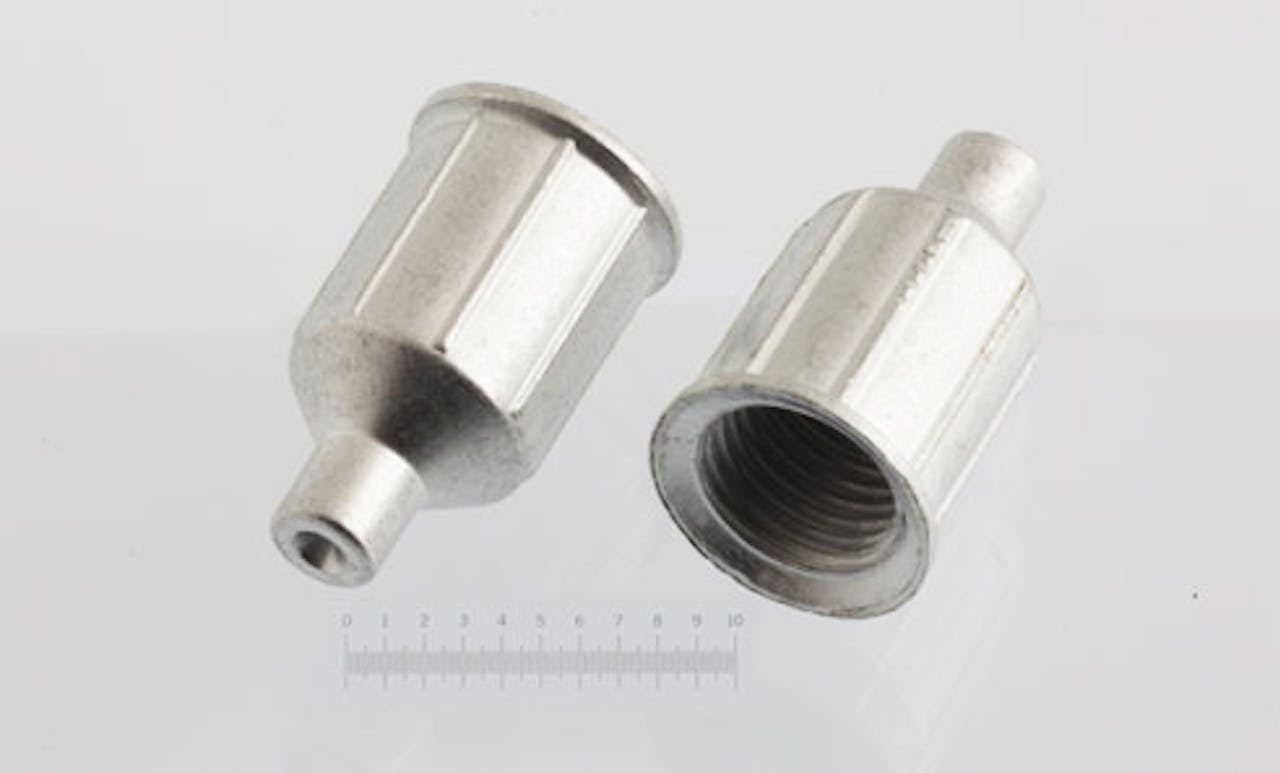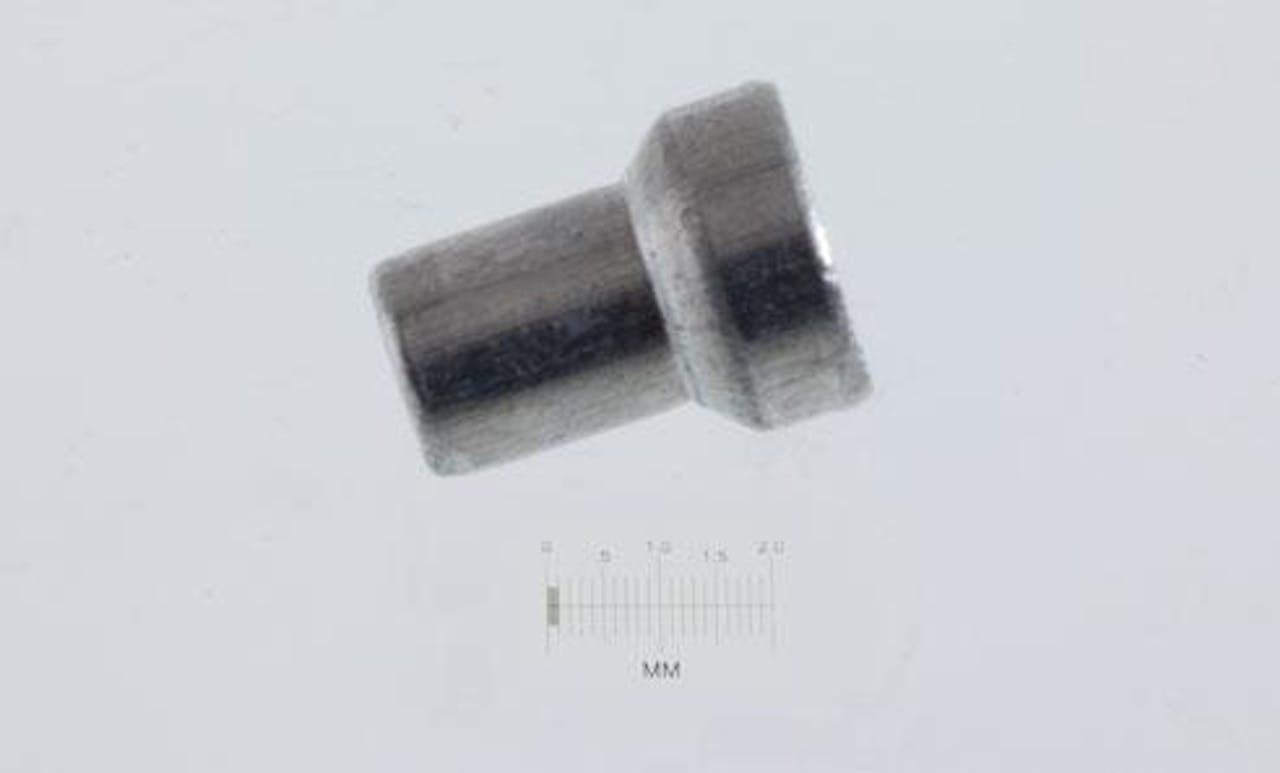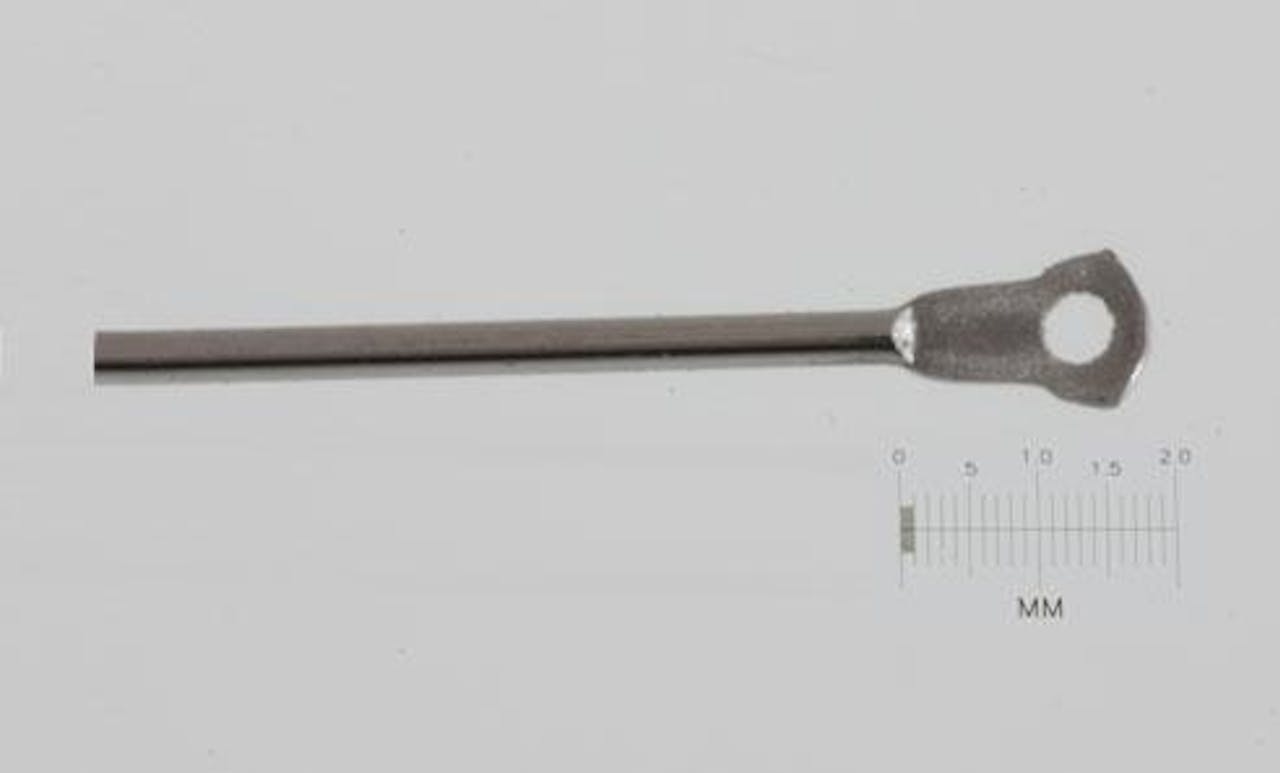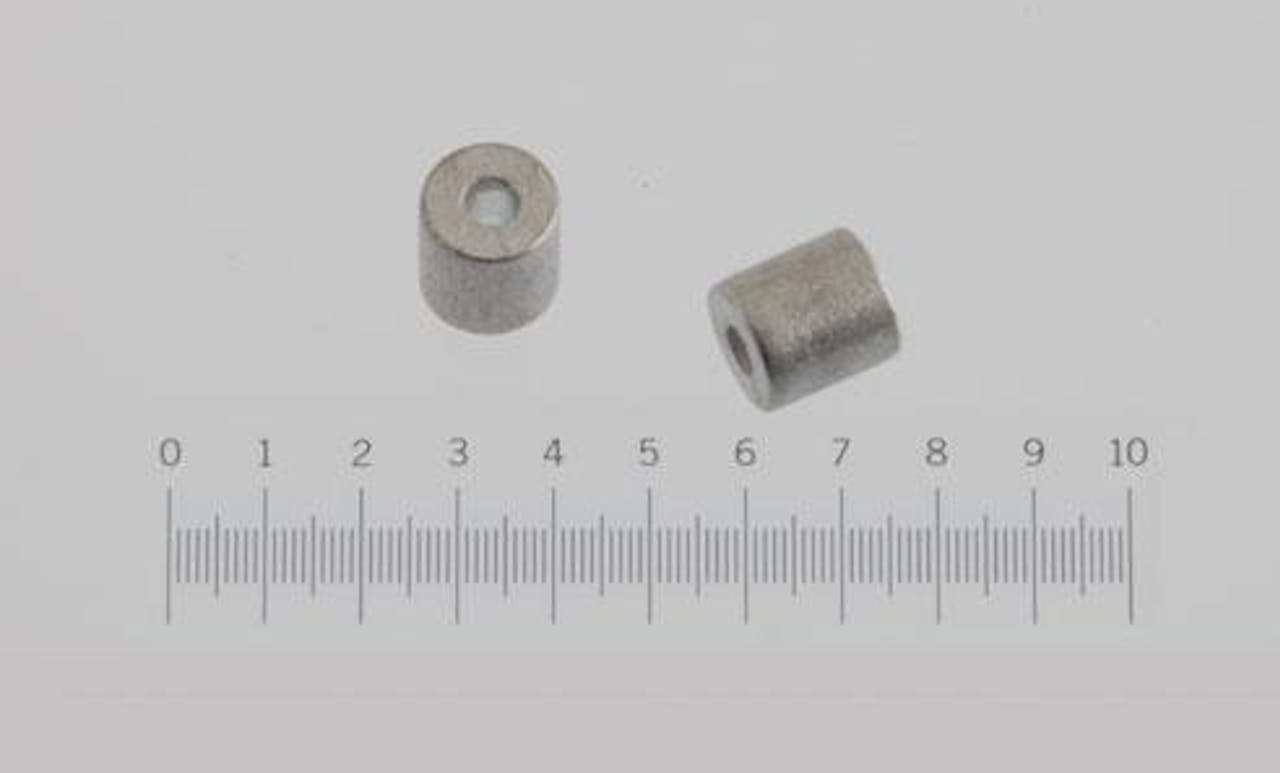Products > Precision Components > Cold-Formed Micro-Components
Miniature Medical Components
Cold forming can be advantageous in the manufacturing of micro medical parts due to the need for long MTBF cycles that are often imperative, and because cold formed medical parts are stronger than most other manufacturing methods. In addition, other superior quality aspects are built-in since the process is inherently free of burrs, smudges, and contamination. A high-polish surface finish can be produced as part of the manufacturing process for applications involving medical components used for implantation. Additionally, there is no need to run cold formed parts through acid baths in order to pass cytotoxic testing.
CUSTOM MANUFACTURING
Custom Micro-Components
We provide medical manufacturing that supports our customers with high-speed product ramp-up, delivery, and the ability to manage volume regardless of complexity or product mix. In addition to our state-of-the-art machining capabilities and expert engineering and manufacturing support, we also offer design, prototyping, and tooling support.
Contact us to learn more about our miniature medical component manufacturing services.

Custom Solution Examples
Canula Hub
Material: Aluminum alloy.
Manufacturing Method:
- Cold-formed in a multiple station cold header.
- Threads formed automatically in a secondary operation.
Notable Features:
- Very small minor ID = .020" (.4mm) with a tight tolerance =+/- .0004" (.001mm)
- Chamfers formed at either end of the small ID for easier automatic insertion of the canula.
Advantages:
- Material waste is minimal.
- The part is formed from aluminum alloy round wire.
- Production speeds are high allowing for low production costs.
- The (ID) threaded portion is burrless (very important). The threading operations do not mark the ribbed surface of the OD.

- Tight/consistent ID tolerances are possible by forming the tube rather than drawing the ID to tolerance.
- Rib formation on OD provides a gripping surface for the screw-in of the syringe.
- Wall thickness varies greatly from very thin to thick features not easily manufactured with a deep draw process or machining.
Cold Formed Ferrule Tube
Material: Aluminum alloy
Manufacturing Method:
- Cold-formed in a multiple station cold header.
- Counterbore and through-hole and chamfers formed in the progression off the machine complete.
Notable Features:
- Very small minor ID = .030\" (.6mm) with a tight tolerance =+/- .0004\".
- Chamfers formed at either end.
Advantages:
- Material waste is minimal.
- The part is formed from aluminum alloy round wire.

- Production speeds are high allowing for low production costs.
- The material used is aluminum solid wire, which is less expensive and readily available in contrast to tubing which has long lead times.
- Tight/consistent ID tolerances are possible by forming the tube rather than drawing the ID to tolerance.
Medical Drive Wire
Material: 316 stainless steel; very high tensile.
Manufacturing Method:
- Multi-Die cold formed. Manufactured as a complete part on proprietary designed & built cold forming machines.
Notable Features:
- High strength cold-formed shape on the end of wire able to hold over 20 pounds pull strength without fracturing or breaking.
- Special shaped coined (flattened) area with a pierced through-hole of .020" (.5mm) diameter.
- The pierced hole is very strong and will hold 30 pounds of tensile before breaking.
- Very close dimensional tolerances on the pierced hole as well as the flat feature.
- The surface finish is highly polished, making for a slippery finish. Very smooth sliding motion inside the accompanying drive wire sheath.
Advantages:
- Formed from wire with no scrap developed.

- Production speeds are high allowing for low production costs. Much faster than machining or grinding.
- The formed shape is precisely controlled on a high tensile stainless steel wire.
- The cold-forming method creates high strength features much higher than those achieved by machining/grinding similar in theory to cold-formed bolt head versus machined bolt head strengths.
- Pull strengths and tolerancing is a highly repeatable very controlled process.
Canula Tube
Material: Aluminum alloy
Manufacturing Method:
- Cold-formed in a multiple station cold header.
- Counterbore, through-hole, and chamfers formed in the progression off the machine complete.
Notable Features:
- Very small minor ID = .020" (.4mm) with a tight tolerance =+/- .0004" (.001mm).
- Chamfers formed at either end.
Advantages:
- Material waste is minimal.
- The part is formed from aluminum alloy round wire.

- Production speeds are high allowing for low production costs.
- The material used is aluminum solid wire, which is less expensive and readily available, in contrast to tubing which has long lead times.
- Tight/consistent ID tolerances are possible by forming the tube rather than drawing the ID to tolerance.